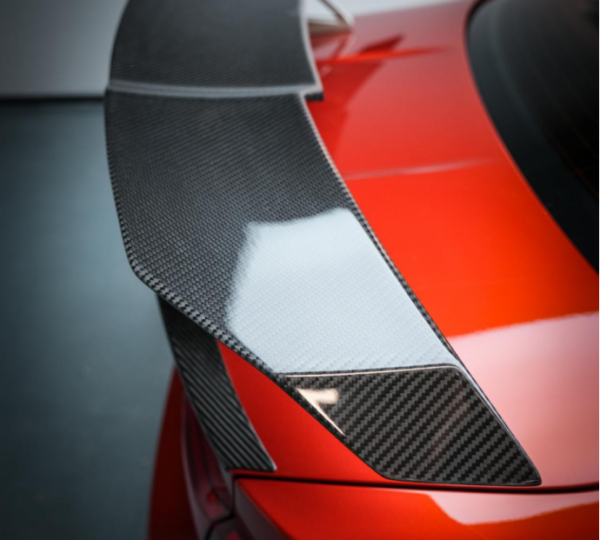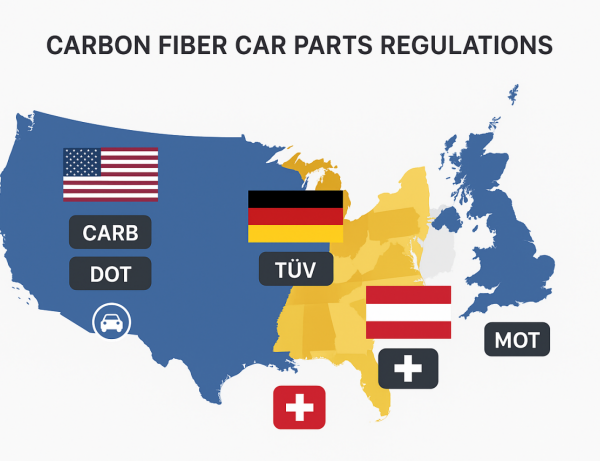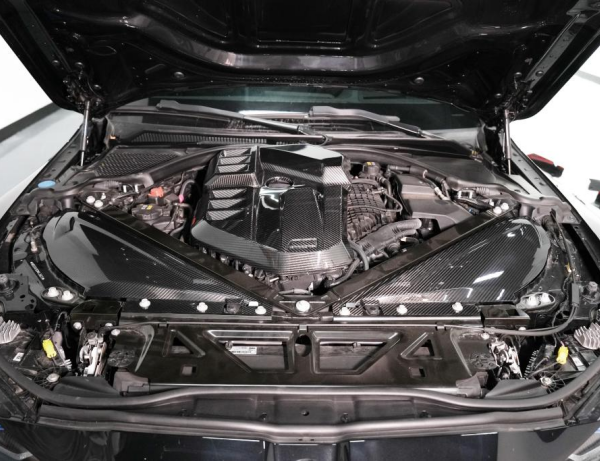Table of Contents
Are Carbon Fiber Car Parts Street Legal? What Every Car Enthusiast Needs to Know

🚨 Can You Drive Legally with Carbon Fiber Parts?
If you’re a car enthusiast, you’ve probably asked yourself: “If I slap on a carbon fiber hood or spoiler, can I still drive my car on public roads?”
The answer? It depends. Laws in the U.S. and Europe can be pretty strict. Something that’s totally fine in one state or country might be illegal in another. Don’t let a sick carbon fiber upgrade turn into a legal headache.
🔍 What You Need to Know About Carbon Fiber Laws

🇺🇸 United States
Most carbon fiber body parts—like hoods, bumpers, and spoilers—are street-legal as long as they don’t mess with emissions, lights, or safety equipment.
- CARB (California Air Resources Board): In California, any parts that affect emissions or engine performance must be CARB-approved. Without it, your car may fail inspection.
- DOT (Department of Transportation): DOT approval is needed for parts that affect safety or lighting standards.
Other states may have different rules, so always double-check your local DMV regulations before installing.
🇩🇪 Germany, Austria & Switzerland
Here’s where it gets stricter. In Germany, Austria, and Switzerland, carbon fiber parts usually need TÜV approval.
- TÜV ensures your parts are safe, durable, and properly built.
- No certificate? You could get fined, or your car might be deemed illegal to drive.
- In Europe, TÜV certification is essential for carbon fiber parts to be street legal. In the U.S., CARB and DOT approvals may apply depending on the state. Always check your local regulations.
🇬🇧 United Kingdom
- Carbon fiber hoods, spoilers, and trim must pass MOT inspections.
- Always tell your insurance company about any modifications, or your policy might become invalid.
💡 Tips for Choosing Legal Carbon Fiber Parts

- Check Certifications: Look for TÜV in Europe or CARB/DOT in the U.S.
- Make Sure They Fit Right: Parts must be properly installed and follow size regulations.
- Go With Trusted Brands: JCSPORTLINE tests every carbon fiber part for quality and compliance.
- See Real Results: Our customers have installed carbon fiber kits and passed inspections in the U.S. and EU without a hitch.
Browse JCSPORTLINE for high-quality carbon fiber parts that meet U.S. and European regulations.
Chat with our experts to get parts that fit your car and your local laws.
Follow us on social media for tips, legal updates, and installation guides.
Why Choose JCSPORTLINE?

With over 20 years of experience in carbon fiber car parts, JCSPORTLINE has mastered both production quality and industry standards. From designing lightweight hoods and spoilers to ensuring every part meets street-legal requirements, we know what it takes to deliver safe, durable, and compliant carbon fiber upgrades.
Whether you’re upgrading your own car or sourcing parts for your business, we can provide the best solution tailored to your needs. Trust the experts who have been shaping the carbon fiber industry for two decades.





